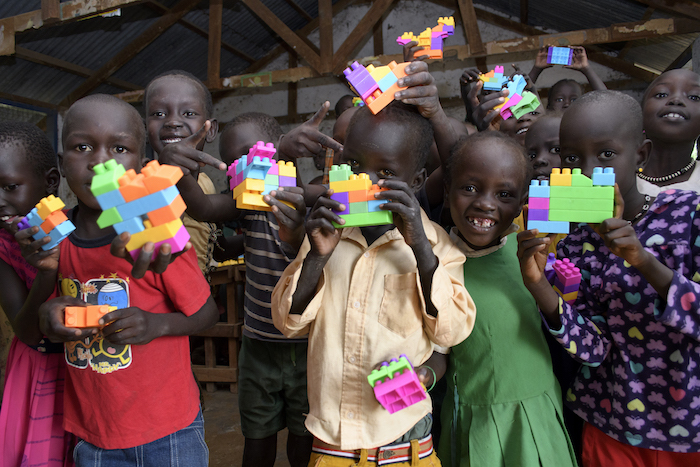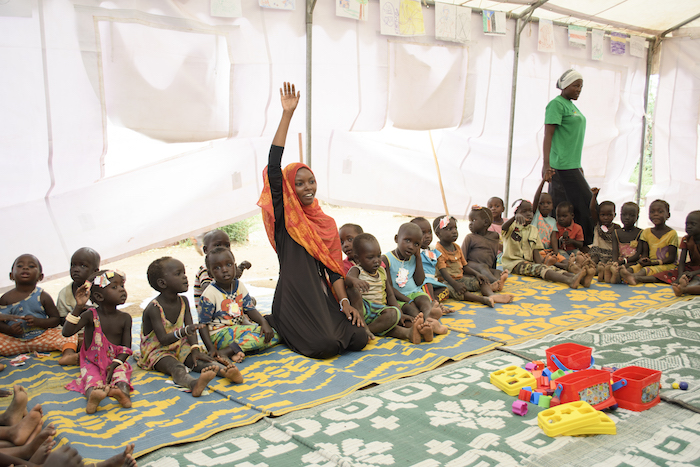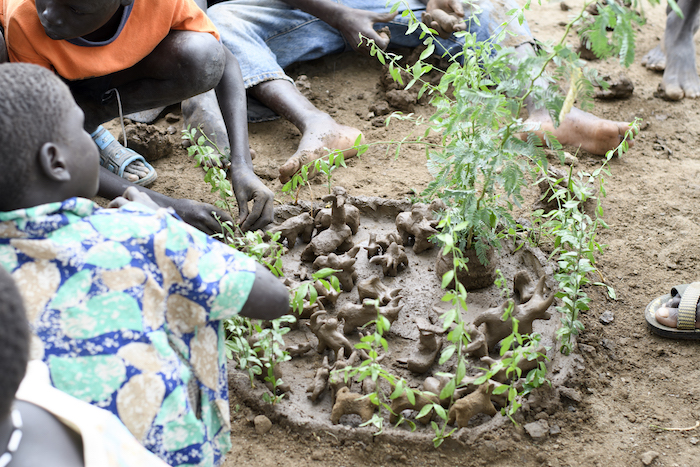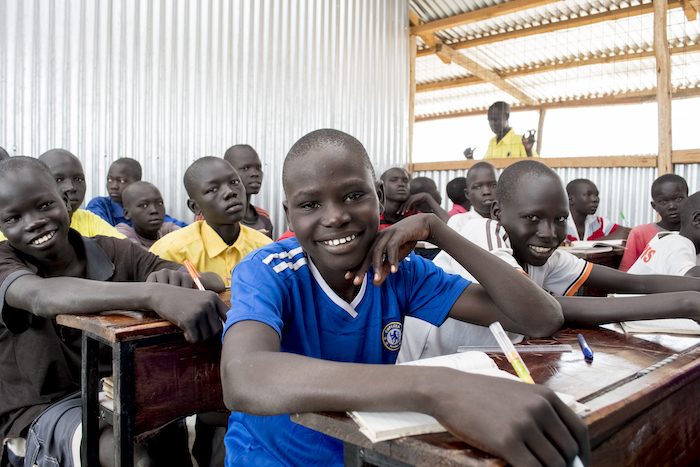Driven out of their homes by war, famine and persecution, 190,000 refugees and asylum-seekers live in northwestern Kenya's
Kakuma Refugee Camp and Kalobeyei Integrated Refugee Settlement. Established in 1992 following the arrival of the "Lost Boys of Sudan," Kakuma and Kalobeyei serve refugees from 19 countries, including South Sudan, Burundi, Somalia, Ethiopia, the Democratic Republic of the Congo, Eritrea, Uganda and Rwanda — over 80 percent of them women and children.
Kakuma will host the first-ever TEDx event at a refugee camp on June 9
Some 42 percent of Kenyans live below the poverty line, and the nation has struggled to accommodate the needs of the growing refugee population. UNICEF works with partners in Kakuma and Kalobeyei to provide vital services — safe water, nutrition, early childhood programs, education, counseling, sanitation, immunization and medical care — for children whose lives have been disrupted by conflict.
On a recent field visit with UNICEF staff members and partners, UNICEF USA Global Programs Associate Coco Vonnegut met with teachers, administrators, students and camp residents. Below, she shares some of her observations of UNICEF in action:
On average, there are 133 children per classroom in Early Childhood Programs at Kenya's Kakuma Refugee Camp. UNICEF and partners are working to build more classrooms. They also provide teacher training and psychosocial services for children who have traumatized by violence. © Njeri Gakuo
Kakuma's schools are hugely overcrowded, with an average of 133 children per classroom
"During our field visit, we visited several schools and Early Childhood Development (ECD) centers. In Kakuma refugee camp, ECD programs have an average of 133 children per classroom. Classrooms of this size threaten the quality of a child’s education. While the primary language of instruction is Swahili, schools can be a microcosm, with students from over 10 countries in a single classroom. We were incredibly impressed by the teachers’ skill and patience in this learning environment. UNICEF and its partners adopt a holistic approach to ECD for refugee and host community children, providing psychosocial services alongside education, depending on what the children need.
"Many of these kids have experienced trauma: seeing conflict firsthand, violence within the camp itself, separation from family or sexual abuse. To be able to balance the different stages of where these children are in their recovery and still provide learning is a huge challenge.
A teacher leads a group of students in a game at a UNICEF-supported Child-Friendly Space at the Kakuma Reception Center. © Njeri Gakuo
"Just over 1,000 students between the ages of 4 and 6 attend classes at the Gilo School. They have several classrooms and a specialized program for students with disabilities. Spending time at schools and ECD centers in Kakuma was often a joyful experience. Kids are encouraged to play and really be kids. But, there is no denying that classrooms are under-resourced.
“The headmistress at the Gilo School, Lucy, shared some of her challenges with our group. There are 136 students for each latrine. The maximum should be 25. Lucy told us that one textbook is shared between seven kids. To be able to engage students in this kind of atmosphere is incredible. Meeting teachers who have been trained to work within such large groups of students and provide a quality education was inspiring. This is where UNICEF can make all the difference, working with implementing partners in the field to keep pace with the growing demands of schools and ECD classes.”
UNICEF-trained teachers and counselors work with children who have been traumatized by violence
Children sculpt animals from mud at a Child-Friendly Space supported by UNICEF and the Waldorf Kakuma Project at the Kakuma Refugee Camp in Kenya's Turkana district. © Njeri Gakuo
"The Furaha Center is a Child-Friendly Space supported by UNICEF, the Waldorf Kakuma Project and other partners. The classes encourage creativity. In one class, children were sculpting animals out of clay. They link these creative exercises to leadership, because when you create something, you're really molding it and shaping the direction of it. They use these activities to empower the children, so they can feel in control after experiencing trauma or conflict.
"We had an opportunity to visit the Future School, where UNICEF USA’s partners are supporting the construction of new classroom spaces. At the construction site, I met a woman named Shantale and her 6-month-old baby, Beatrice. She was resilient. Shantale told us about how she and her husband left the Democratic Republic of the Congo. Her husband was targeted as a leader in their community and they needed to flee. It took her family 10 years before they reached Kakuma. Shantale has four children of her own, and during her journey to Kakuma she met and adopted three orphaned children who had been displaced by the violence. Shantale’s husband has been employed to help build new spaces at the Future School, where three of their children are enrolled.
Fito, 12, is a student at the Future School in the Kalobeyei Refugee Settlement. He wants to become a doctor or a teacher someday. "I'd like to teach children in school because that's what my heart feels like doing," he says. © Njeri Gakuo
"During our talk with Shantale, members of the UNICEF Education team were able to provide counsel on medical treatment for her child, who was feeling unwell. They provided transportation to a nearby clinic and helped her figure out what papers she would need when she arrived. This team exemplifies everything that UNICEF does. On the one hand, they do upstream work with the Ministry of Education, advocating at the highest level. And at the same time, they are in the field to the fullest extent, advocating for children in every instance. UNICEF really does put children first."


























